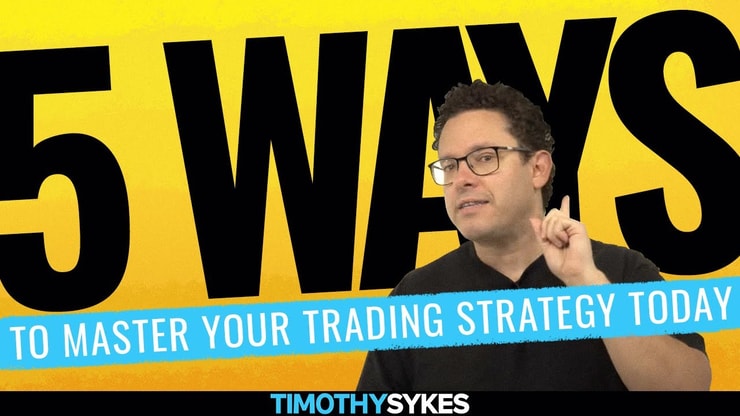The trending stocks that are best for trading have one magic ingredient — breaking news.
It’s often said that the market is a discounting machine. The viral videos, macroeconomy, and Reuters finance stories that move it are all its inputs — and they all come in the form of breaking news.
Breaking news content can be credit cards interest rates falling or presidential results being issued. ChatGPT’s logo showing up in ads for another company can provide trade ideas. Even a regular calendar occurrence can move stock quotes.
In this article we’ll discuss the importance of breaking news, the rules I trade breaking news stocks with, and how you can use breaking news to inform your bids!
Table of Contents
- 1 What Are Stocks?
- 2 Understanding Financial Markets
- 3 Financial Advisors and their Role in Understanding Stocks
- 4 Types of Stocks to Consider Investing In
- 5 How Does News Impact Stock Prices?
- 6 How Do Stocks React to News?
- 7 How to Handle Short-Term Volatility
- 8 How to Anticipate Breaking News in the Stock Market?
- 9 Key Takeaways
What Are Stocks?

At the most basic level, stocks represent ownership in a company. When you buy shares, you’re purchasing a piece of that business’s potential earnings and growth. Investment accounts grow when the stocks they hold increase in value.
When you trade stocks, you try to buy or sell at a different cost than you initiated the transaction with. The difference often comes in the form of breaking news.
Breaking news can be a catalyst for significant market movements. For instance, a sudden surge in interest for a particular stock can lead to a flurry of activity, often resulting in a sharp increase in its price. This is especially true for stocks that are currently ‘hot’ in the market. These are the stocks that are experiencing a surge in volume and price due to various factors. To understand more about these stocks, you can check out this article on Hot Stocks. It provides a comprehensive guide on how to identify and trade hot stocks effectively. Remember, staying informed and updated is key to successful trading.
Breaking News in the Stock Market
Breaking news is like a spark in a dry forest — it can ignite a sudden movement in the stock market. For instance, think about how Tesla’s stock reacts every time Elon Musk tweets, or how an unexpected earnings report can send a company’s shares either plummeting or skyrocketing.
Staying informed with newsletters and news updates is critical in this fast-paced market. Every bit of information is a tool in your arsenal, helping you make educated decisions on where to put your money.
My go-to weapon for finding plays? I use StocksToTrade — I even helped design it! This software is essential for finding trading opportunities.
StocksToTrade’s Breaking News add-on alerts me to important news articles in stocks and the overall economy, giving me a crucial trading edge. The things it spotlights range from new products to photos of officials doing noteworthy things…
Roughly half of my recent trades have been direct effects of Breaking News.
Get a 14-day trial of Breaking News Chat here — only $17!
Understanding Financial Markets
Financial markets are like a global club of traders, companies, and governments, all participating in the buying and selling of various financial assets, including stocks. It’s a broad term that encompasses the stock market, but also other markets like commodities, bonds, and currencies.
These markets are intertwined. A shock in one (like a sudden drop in gold prices or an upheaval in the credit market due to a debt ceiling debate) can create ripples in others. Being aware of these interconnections helps you to understand and predict market trends.
Multi-Year Highs in Global Markets
We’ve seen global markets hitting multi-year highs recently, which is both exciting and, let’s be honest, a little nerve-wracking. But this is the world we trade in. Events halfway across the world can impact our investments here in the U.S.
For instance, tensions in Ukraine can have Russian stocks feeling the heat. But it’s not all about crises. Positive news, like the announcement of a major deal between Alibaba and Cisco, can propel related stocks to new heights.
Kevin McCarthy and Jeffrey Epstein headlines have moved stocks in the recent past. Always be prepared for market moves, good or bad.
Analyst Estimates for Stock Futures
Stock futures are about making educated guesses on tomorrow’s prices today. Analysts play a crucial role here, providing forecasts based on company earnings, sector growth, and economic indicators.
Take Nvidia, for example. When analysts raised their target for Nvidia’s stock based on anticipated sales growth, the market listened, and the stock saw significant movement. Listening to analysts and understanding their estimates can give you a roadmap of potential market trends.
Financial Advisors and their Role in Understanding Stocks

Financial advisors are like your personal Wall Street guides. They offer advice on investment choices based on your financial goals, risk tolerance, and time horizon. But remember, it’s just advice. The final decision on where your money goes should always be yours.
While they can offer valuable guidance, financial advisors are not prophets. They base their recommendations on their analysis of market data, past performance, and industry trends. It’s always a good idea to supplement their advice with your own research.
Seeking Professional Assistance for Investment Decisions
Seeking professional assistance for investment decisions is a way to navigate the complex world of financial markets. Advisors can offer insights into market trends, sector performance, and individual stocks.
However, even with professional guidance, you should stay updated on the latest breaking news affecting your stocks. Remember the cardinal rule of investing: It’s your money, and no one will care about it as much as you do.
Types of Stocks to Consider Investing In
The world of stocks is diverse. From common to preferred, large-cap to small-cap, domestic to international, each type carries unique benefits and risks. The goal is to build a portfolio that reflects your financial goals and risk tolerance.
Understanding the various types of stocks can help you make more informed investment decisions. Remember, the right stock for you depends on your financial goals, risk tolerance, and investment timeline.
I like to trade penny stocks. These are stocks that trade for less than $5 per share and can offer significant profit potential. However, they’re also considered risky due to their volatility and the lack of information about the companies.
If you’re interested in learning more, read this detailed guide on Penny Stocks. It provides valuable insights into the world of penny stocks and how to trade them effectively.
Common Stock
Common stocks are, well, common. When people talk about stocks, they usually mean common stocks. They offer a proportionate share in a company’s profits or losses, and typically, voting rights at shareholders’ meetings. Big names like Google and Tesla offer common stocks.
Preferred Stock
Preferred stock is like the VIP section of a club. Preferred shareholders get dividends before common shareholders and have a higher claim on the company’s assets if it goes bankrupt. However, they usually don’t have voting rights.
Large-cap Stocks
Large-cap stocks are shares in companies with a market capitalization (the total market value of a company’s outstanding shares) of $10 billion or more. They are generally considered more stable and less risky than their smaller counterparts.
Mid-cap Stocks
Mid-cap stocks fall between large-cap and small-cap stocks in terms of market capitalization. They offer a balance between the growth potential of small-cap stocks and the stability and resources of large-cap stocks.
Small-cap Stocks
Small-cap stocks are shares in companies with a market capitalization of under $2 billion. These stocks can offer significant growth potential, but they can also be more volatile and risky.
Domestic stocks
Domestic stocks are shares in companies based in your home country. For us, that’s the U.S. Investing in domestic stocks allows you to invest in what you know and understand.
International Stocks
International stocks offer a chance to diversify your portfolio geographically. They can provide exposure to growth in emerging markets and established economies outside your home country.
Value Stocks
Value stocks are shares in companies that are considered undervalued compared to their intrinsic value. Investors buy these stocks in the hope that the market will eventually recognize the company’s full potential.
IPO Stocks
IPO stocks are shares offered to the public for the first time through an initial public offering (IPO). They offer the potential for high returns, but they can also be risky as the company has yet to establish a trading history.
Penny Stocks
Penny stocks trade for less than $5 per share. They can offer significant profit potential, but they’re also considered risky due to their volatility and the lack of information about the companies.
Blue Chip stocks
Blue-chip stocks are shares in large, well-established companies with a history of reliable performance. They’re the stalwarts of the stock market, known for their steady returns and dividends.
How Does News Impact Stock Prices?

News is the heartbeat of the stock market. Every earnings report, every CEO statement, every geopolitical event can cause a ripple in stock prices. Whether it’s positive news like home sales trending up or negative news like a lawsuit against a company, every bit of information can sway investors’ perceptions and, in turn, stock prices.
It’s not just about the company’s revenue and earnings, but the narrative surrounding it. And that narrative is often shaped by the breaking news of the day.
How Do Stocks React to News?
Positive news can send stocks soaring, while negative news can cause them to plummet. Remember, it’s not just the news itself, but how investors interpret that news.
For instance, when Nvidia announced better than expected sales, the stock surged. However, not all news is interpreted as expected. When China’s Alibaba posted record profits, it was overshadowed by the news of a new regulatory probe, causing the stock to dip.
How to Handle Short-Term Volatility
Short-term volatility can be jarring, but it’s essential to trading. That’s the ingredient that quality breaking news brings.
The way to handle short-term volatility is to stick to your trading plan. That means going for small gains, and cutting losses quickly.
One common occurrence that can lead to short-term volatility is a pump-and-dump scheme. This is when a stock’s price is artificially inflated, often through false or misleading statements, only to be sold off by the perpetrators once the price has risen. To protect yourself from falling victim to such schemes, it’s important to understand how they work. This article on Pump-and-Dumps provides a detailed explanation of these schemes and how to avoid them.
How to Anticipate Breaking News in the Stock Market?
While no one can predict the news, being in tune with the market can help you anticipate potential reactions. Keep an eye on upcoming events like earnings releases, major economic announcements, or changes in Federal Reserve policy.
It’s also important to know your stocks. What sectors are they in? Who are their main competitors? What external factors influence their performance? By understanding the ecosystem around your stocks, you can be better prepared for how breaking news might impact them.
Key Takeaways

Breaking news plays a massive role in stock trading. It can shake up markets, create trading opportunities, and cause a bit of chaos.
Trading isn’t rocket science. It’s a skill you build and work on like any other. Trading has changed my life, and I think this way of life should be open to more people…
I’ve built my Trading Challenge to pass on the things I had to learn for myself. It’s the kind of community that I wish I had when I was starting out.
We don’t accept everyone. If you’re up for the challenge — I want to hear from you.
Apply to the Trading Challenge here.
Trading is a battlefield. The more knowledge you have, the better prepared you’ll be.
Do you use breaking news in your trading strategy? Let me know in the comments — I love hearing from my readers!





Leave a reply